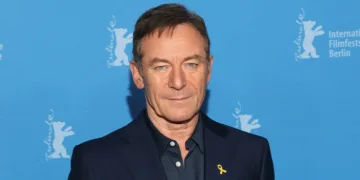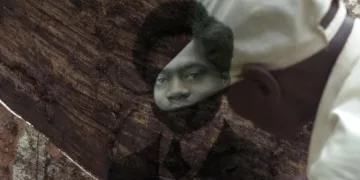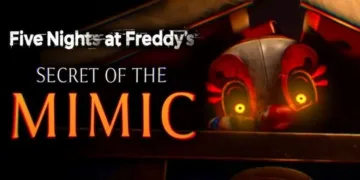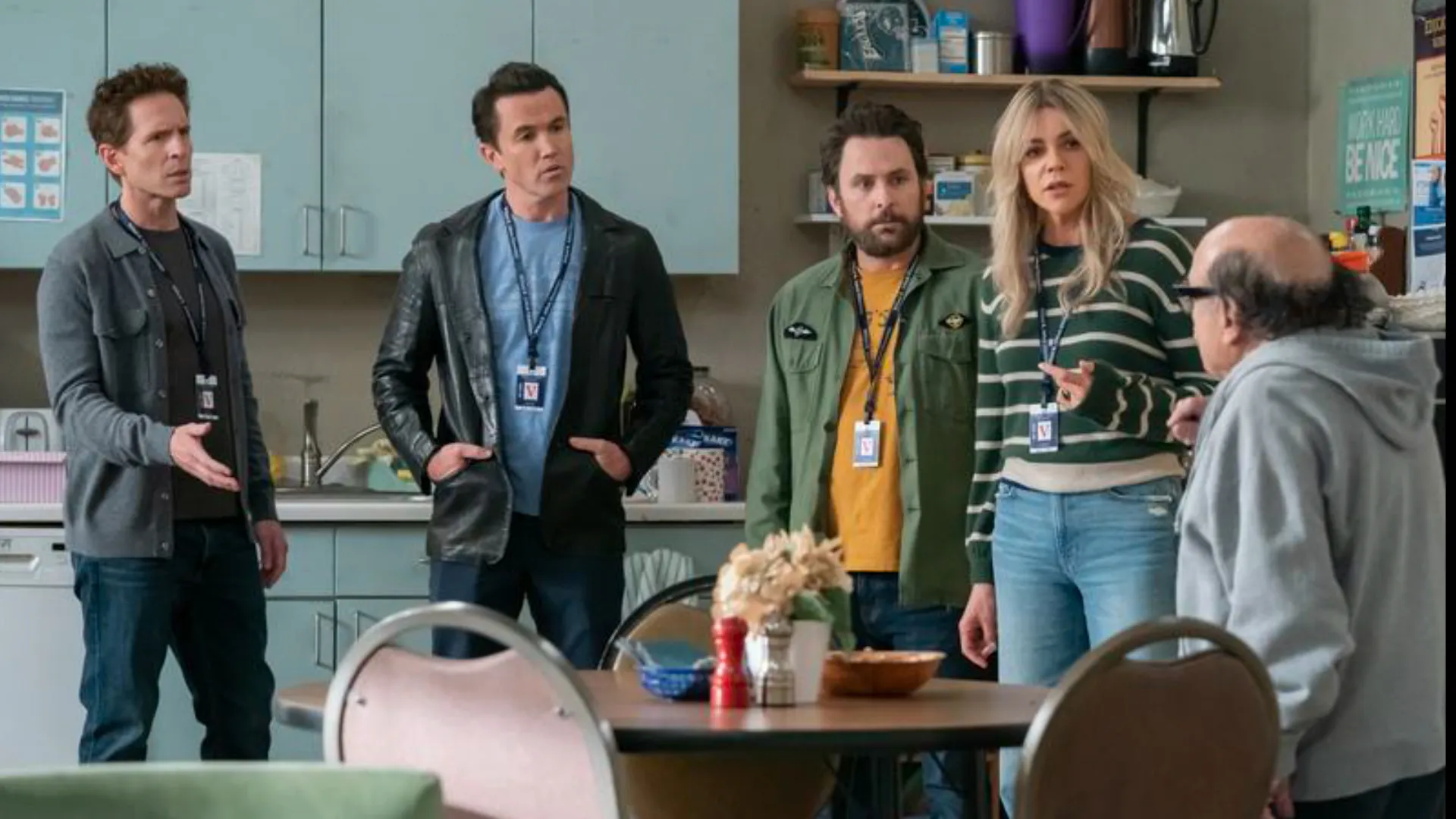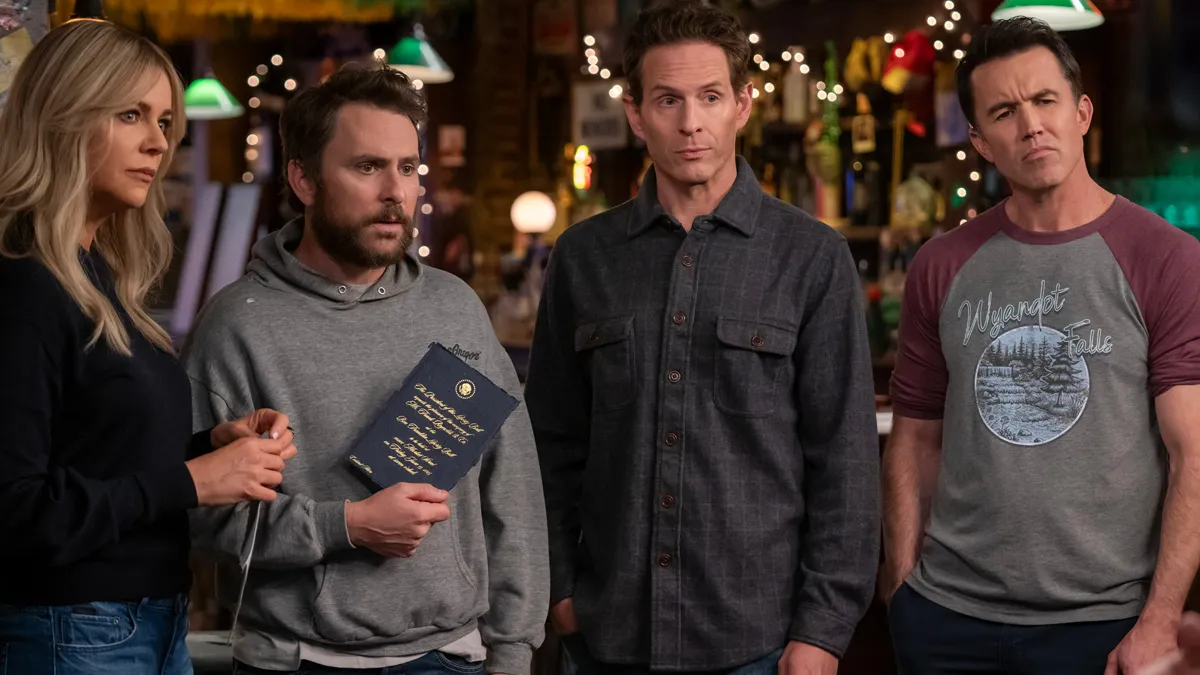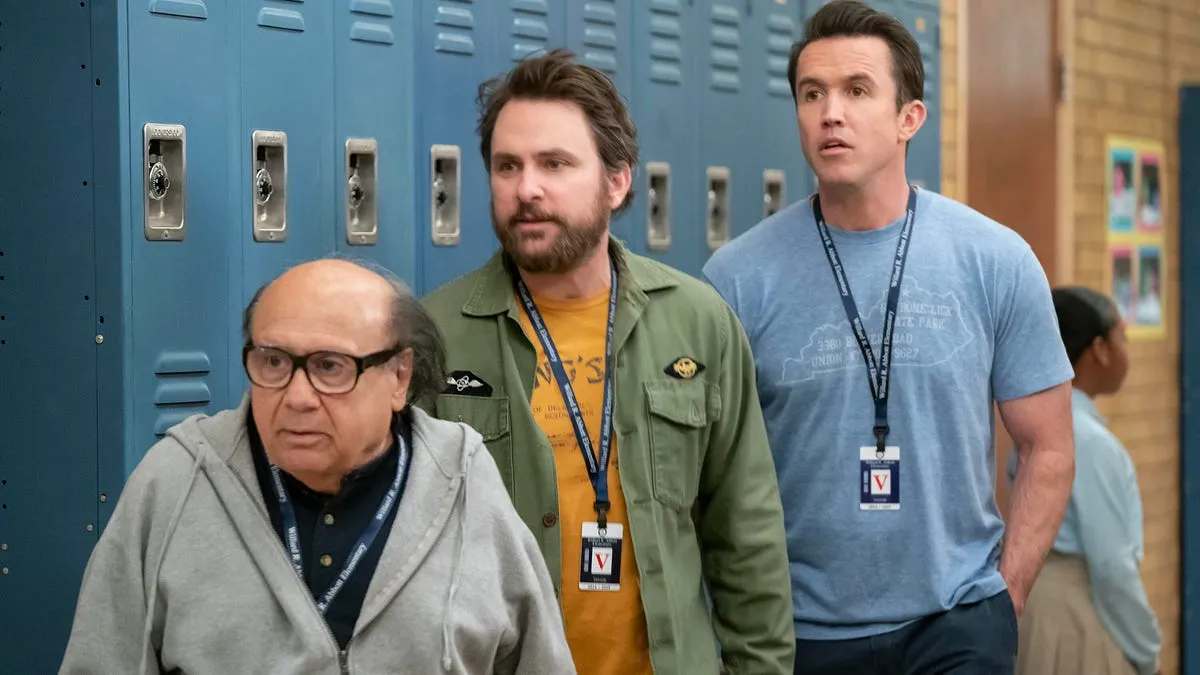In an entertainment ecosystem defined by fleeting trends and streaming shows that often vanish after a single season, the continued existence of It’s Always Sunny in Philadelphia feels like a profound anomaly. Now entering its seventeenth season, it has cemented its status as the longest-running live-action sitcom in American history, outlasting entire eras of television production and consumption.
The show’s endurance is not a sign of creative fatigue; rather, its central premise has become even more potent as the world it satirizes grows more complex. Its longevity poses a question about what we value in storytelling: perhaps it is the comfort of a known, unchanging quantity in a perpetually shifting culture.
The source of this stability is the Gang itself. Mac, Charlie, Dennis, Dee, and Frank remain hermetically sealed containers of human awfulness, their sociopathic inertia acting as the show’s immovable foundation. While other long-running series feel a pressure to evolve their characters in response to shifting cultural norms, Sunny makes a radical choice: its characters are incapable of growth, and their steadfast depravity serves as a fixed point of reference.
They are not people so much as a reflection of base impulses, forever trapped in a cycle of their own making. This season weaponizes that stasis, aiming it squarely at the contemporary television landscape. The Gang’s mission is to insert their specific brand of chaos into the formats of today’s most talked-about shows, turning their unchanging nature into a satirical wrecking ball.
Parody as a Corrosive Agent
The season’s most ambitious move is its structural decision to function as a satirical parasite, attaching itself to the popular television formats of the moment and feeding on their conventions. This begins with the second part of the much-discussed Abbott Elementary crossover.
Where Abbott’s episode was a study in optimistic outreach colliding with nihilism, the Sunny installment, “The Gang F***s Up Abbott Elementary,” is a full-scale invasion. It’s a fascinating piece of media synergy, weaponizing a shared corporate ownership to pit two opposing television philosophies against each other.
The mockumentary style, used in Abbott to find warmth in the mundane, is repurposed here to document a descent into R-rated chaos. Janine Teagues’ horrified idealism becomes the perfect foil for the Gang’s destructive apathy, while Ava Coleman’s easy rapport with them suggests a shared DNA of opportunism that transcends network standards.
This deconstruction of television tropes becomes more sustained with the multi-episode arc featuring Frank Reynolds on The Golden Bachelor. The original reality series was a carefully packaged cultural product about second chances at love for an older demographic. By inserting Frank—a grotesque embodiment of transactional desire—into this formula, the show dissolves the genre’s romantic veneer.
The comedic friction comes from a character who refuses to perform the expected emotional labor, exposing the manufactured nature of the format. The season finale, “The Golden Bachelor Live,” masterfully mimics the aesthetic of a live reunion show, using the presence of a bewildered Jesse Palmer to hold up a mirror to the absurdity of expecting authenticity in such a contrived environment.
The season also turns its gaze toward the self-serious aesthetic of prestige television, though with mixed results. The attempt to channel the high-stress, culinary intensity of The Bear in “Mac and Dennis Become EMTs” uses the Gang’s incompetence to undercut the idea that any profession can be elevated to high art through stylized execution.
More telling is the homage to Succession in “Thought Leadership: A Corporate Conversation.” The parody here feels less defined, perhaps because its target is already a sharp satire of corporate power dynamics. It raises an interesting question about the current media landscape: when reality and prestige drama already operate at a high level of absurdity, the space for effective parody begins to shrink.
The Enduring Art of Repulsion
While the season’s conceptual framework is a critique of modern television, its engine remains the cast’s unwavering commitment to their monstrous characters. This season, in particular, serves as a powerful argument for Danny DeVito’s status as one of the most fearless comedic actors working today.
In an industry that often sands down the edges of its veteran stars, DeVito leans further into the grotesque. His performance as Frank Reynolds is a masterclass in range, moving from the absurdly confident romantic lead in The Golden Bachelor parody—a hilarious deconstruction of the archetype of the desirable older man—to the bleak, physical comedy of being comatose.
His work is a potent reminder that performance can be a form of cultural commentary; his Frank is a walking, talking embodiment of unchecked capitalist id, and DeVito’s refusal to soften him is a radical act. It’s a performance that should, in a just world, force a conversation about what awards bodies choose to recognize as “brave.”
At the other end of the spectrum is Glenn Howerton’s Dennis, a character whose narcissism has become a chillingly precise reflection of certain aspects of modern masculinity. Howerton continues to find new, terrifying layers in Dennis’s psyche.
His desperate, wild-eyed plea in a later episode for others to see him as a person is a standout moment, a perfect storm of comedic timing and psychological horror. It’s a performance that captures the profound emptiness at the heart of a personality built entirely on external validation, a theme that feels acutely relevant in the age of the personal brand.
The rest of the ensemble operates with the seamless chemistry that has become the show’s unsung virtue. Charlie Day, Rob McElhenney, and Kaitlin Olson demonstrate a remarkable understanding of when to cede the spotlight.
Their skill lies in their ability to function as both chaotic agents and the necessary support for the season’s larger satirical swings. In an era where television is often built around a single star, their cohesion is a testament to the power of a true ensemble, where the collective performance creates a reality more compelling and repellent than any single part.
The Burden of a Long Memory
For a series to last two decades is to accumulate a history, and this season sees It’s Always Sunny engaging with its own past in ways that both mock and honor the passage of time. The most direct example is “Overage Drinking: A National Concern,” a sequel to a Season 1 episode.
This is more than a simple callback; it is the show’s cynical take on the legacy sequel trend currently dominating popular culture. By bringing back the original guest actors, now adults, to confront the same five emotionally-stunted characters, the episode creates a stark, jarring reflection on time.
Where other franchises use nostalgia to celebrate growth, Sunny uses it to underscore its characters’ profound stasis. The result is an unsettling experience for the long-time viewer, forcing an awareness of one’s own aging against the backdrop of the Gang’s unchanging immaturity.
The season’s meta-commentary also evolves. If Season 9’s “The Gang Tries Desperately to Win an Award” was an outward-facing jab at an industry that refused to acknowledge it, then this season’s “The Gang Gets Ready For Prime Time” is an inward-facing declaration of identity.
Putting the characters through a focus group is no longer a plea for external validation but a defiant confirmation of their inability to be anything other than what they are. It is a statement that in an age of brand-safe, algorithm-driven content, Sunny remains committed to its own repulsive formula, incapable of being polished for a mainstream audience.
This defiant cynicism is what makes the season’s rare moment of sincerity so potent. The quiet tribute to the late Lynne Marie Stewart, who played Charlie’s mother Bonnie, is a brief but significant crack in the show’s misanthropic armor. In a universe where death is almost always a punchline, this genuine acknowledgment of loss carries an unexpected weight. It is a fleeting, poignant reminder that even the hermetically sealed world of Paddy’s Pub is not immune to the real-world consequences of time.
The Enduring Power of Nihilism
The ultimate thematic statement of It’s Always Sunny in Philadelphia is that some forces, particularly human selfishness, are immutable. The Gang does not learn, nor are they meant to. Their narrative function is to serve as a constant—a vortex of depravity that absorbs and corrupts everything it touches. This season’s structure, built around television parodies, provides the clearest evidence of this thesis.
The characters do not adapt to the earnestness of a network sitcom or the contrived sentimentality of a reality dating show; they infect these formats with their own pathology, bending the structures until they shatter. This thematic consistency is the show’s most challenging and potent argument: it posits that beneath the veneer of societal progress and personal growth lies a bedrock of unchanging, self-serving impulse.
This philosophical core is what keeps the series’ comedic edge brutally sharp. The humor remains audacious because it is rooted in this unflinching worldview. Even in its seventeenth season, the show can produce jokes of such shocking and glorious darkness that they feel genuinely dangerous.
Moments like the punchline derived from a Netflix reality show or the skewering of a viral internet moment demonstrate a series that has lost none of its bite. It continues to feel vital not just by pushing boundaries, but by proving that its brand of unapologetic cynicism is a uniquely effective tool for satirizing a world that grows more absurd by the day.
An Unshakable, Unsavory Masterpiece
This season succeeds through a brilliantly executed framework of cultural parody, a powerhouse performance from Danny DeVito that defies all industry expectations, and a sharp, self-aware engagement with its own formidable legacy.
The result reaffirms the series’ singular genius. It doesn’t reinvent itself to fit the modern television landscape; it uses that landscape as a canvas to prove that the Gang’s specific, timeless depravity remains one of the most vital and brutally funny forces in entertainment today.
Full Credits
Directors: Todd Biermann (for the crossover episode “The Gang F***s Up Abbott Elementary”), plus various returning directors (e.g., Randall Einhorn, Matt Shakman)
Writers: Charlie Day, Rob McElhenney, Keyonna Taylor, David Hornsby, Nina Pedrad, Javi Scott, among others
Producers and Executive Producers: Rob McElhenney, Glenn Howerton, Charlie Day, Michael Rotenberg, Nick Frenkel, John Fortenberry, Scott Marder, Rob Rosell, David Hornsby, Dan Attias, Matt Shakman, Megan Ganz, and more
Cast: Charlie Day, Glenn Howerton, Rob McElhenney, Kaitlin Olson, Danny DeVito; recurring: David Hornsby, Mary Elizabeth Ellis, and guest Abbott Elementary cast including Quinta Brunson, Tyler James Williams, Janelle James, Lisa Ann Walter, Chris Perfetti, Sheryl Lee Ralph, William Stanford Davis
Directors of Photography (Cinematographers): Peter Smokler, John Tanzer, Eric Zimmerman (notably “Charlie Has Cancer”)
Editors: Josh Drisko, Tim Roche, Robert Bramwell, Skip Collector, Trevor Penna, Scott Draper
Composer / Theme Music Composer: Heinz Kiessling (“Temptation Sensation”) along with the series’ long-time sound team
The Review
It's Always Sunny in Philadelphia Season 17
It's Always Sunny in Philadelphia’s seventeenth season is a masterclass in comedic endurance. By turning its satirical gaze upon the landscape of modern television, the series reaffirms its own unflinching, nihilistic genius. Anchored by a career-best performance from Danny DeVito and a clever engagement with its own two-decade history, the season proves that the Gang’s profound depravity isn't just timeless—it's more culturally necessary and brutally funny than ever. This isn't just another season; it's a defiant statement of purpose from television's most reliable monsters.
PROS
- A brilliant satirical framework that deconstructs modern TV tropes.
- A phenomenal, awards-worthy performance from Danny DeVito.
- Intelligent use of the show's long history for both comedic and meta-commentary.
- The comedic writing remains as sharp and audacious as ever.
CONS
- Not all prestige TV parodies land with equal impact.















